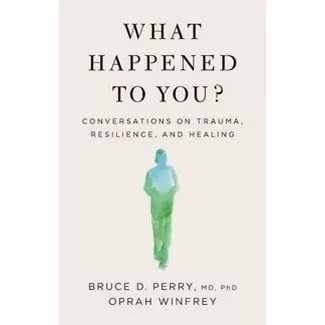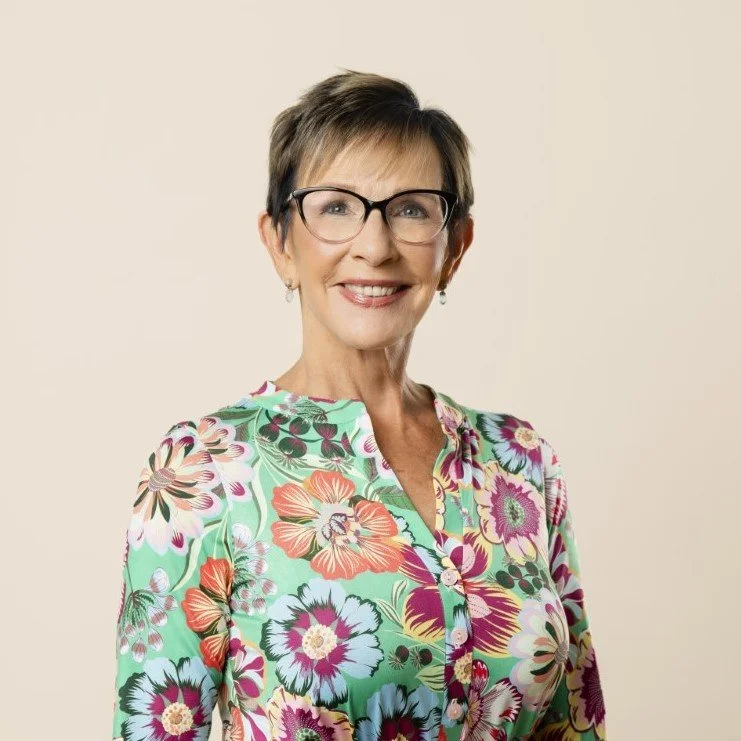What Happened to You? A Book Review
/We remember, don’t we, when someone would ask about another person: “What’s wrong with him (her/them)?” We still cringe, perhaps, when we remember being asked, “What’s wrong with you?” The blame, the shame, the uncertainty those words elicited sears into memories and activates the negative voice whispering in our ears. “What’s wrong with you?” is a statement more than question, one that nudges the receiver toward feelings of giving up and becoming less than she/he/they really are.
How softly, by comparison, this question lands: “What happened to him (her/them)?” Or: “What happened to you?”
This slight turn of a phrase opens a vast space for understanding, for inquiry, for change. What happened, indeed.
Into this space slips the book What Happened to You: Conversations on Trauma, Resilience, and Healing by Oprah Winfrey and Dr. Bruce Perry, a renowned child psychiatrist and neuroscientist with expert understanding of trauma and its effects, especially on children though many other examples abound. The 304-page book, available in hardcover, audiobook, Kindle, and audio CD, balances exquisite storytelling, life-sharing, the science of the brain, and the psychology and physiology of trauma in its many forms. I toyed with giving it as a holiday gift, then decided to read (listen to) it again instead. I ended the second reading with this conclusion: This book is an important read for new parents, experienced parents, grandparents, teachers of all kinds from elementary school to yoga teachers, friends and partners of people who have served in the military – and those people themselves – medical workers, and anyone who has suffered from trauma. This is a book for everyone.
This is a book for everyone.
I know, I know. You may be shaking your head, thinking this is a tome that will be simpering, sappy, or apologetic. It isn’t. It’s a clear-eyed, reality-based explanation of what trauma – and there are all kinds of trauma – does to the human brain, how left unattended it can haunt people for the rest of their lives, and how it can be countered.
photo credit: The New York Times, Best Books of 2021
Ms. Winfrey, the great journalist, interviewer, commentator, philanthropist, actor, and student, and Dr. Perry, whose work in the meaty fields of neuroscience, medicine, and trauma, met in the late ‘70s when the former invited the latter to visit her at her farm in Indiana. Oprah wanted to gain a better understanding from him of childhood trauma, driven by her painful experiences as a small girl and by the many people who shared their stories of trauma on her talk show over the years. The result of a decades-long collaboration – their book – both mesmerizes and teaches.
In the introduction to one chapter, Oprah reminds readers (or listeners) that babies come into this world whole and complete. When they begin life without feeling safe, deeply grounded, and rooted into community and culture, however, the effects can be felt throughout their lives. Therefore, in every yoga class at Green Lotus teachers ground students so they can feel supported and nurtured – we never know which ones failed to have early support or just need a boost to feel a sense of safety, security, and belonging. It’s why Green Lotus offers Yoga Nidra and iRest sessions – to reclaim the wholeness and completeness with which we entered life because we never know, for certain, who is struggling with the after-effects of trauma and exhaustion.
This book is the opposite of a downer – it lifts the reader up with its reporting and stories of the resilience of humans and how trauma can be healed and overcome with patience and perseverance. It inspires even as it teaches (including an amazing PDF of illustrations that show how the brain works.)
And it reminds us again and again of the importance of a stable, loving entry into the world, especially in the first few weeks. It reminds us that a rich country like the United States can afford and should afford to better support parents as they care for newborns in those first few precious weeks and months – among the rich nations, ours falls dismally to the bottom of the list. How foolhardy to hold back support when it matters most – in the first weeks of life – and then pay exorbitantly and forever when adults flounder. In this area of policy, this question is begged: What happened to us?

































